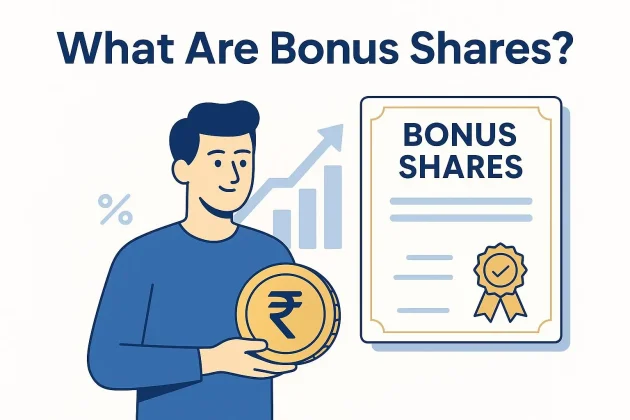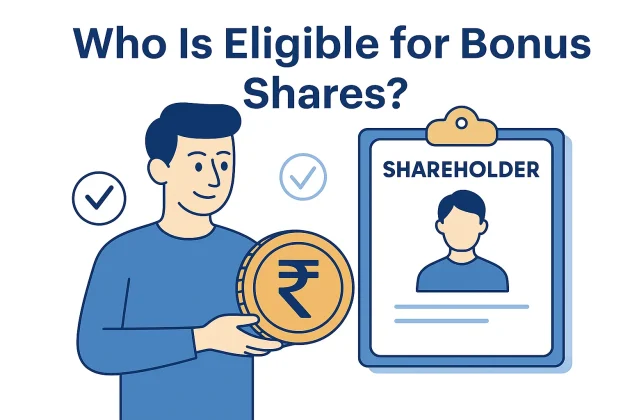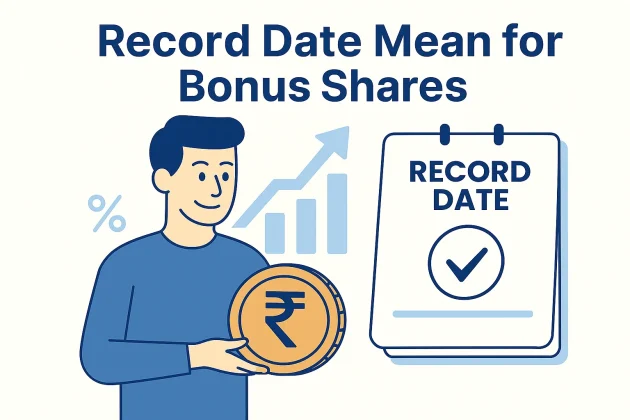Introduction
Company-issued bonus shares are an ideal reward for existing shareholders and an easy way for a company to take responsibility that does not involve paying cash. If you buy shares in a specific company, sometimes you may just receive additional shares automatically because you already have permanent ownership in the company’s shares. That is the simply stated purpose of bonus shares. It’s an absolute win-win for both the company and the investor, because the company can finally invest its earnings back into the company for development and growth, and the shareholder simply sees their holding get larger.
This article is going to define and analyze what bonus shares are, how they work, who qualifies for them, and why they matter. First, we’ll look at bonus shares in general for those new to the stock market or learning about bonus shares again, then we will conclude with the practicalities surrounding stocks that are issued as bonus shares.
What Are Bonus Shares?

Bonus shares are shares that a company gives its existing shareholders to reward them as part of the company’s profits or reserves which are not paid out as dividends. Free shares – that’s right – free! Instead of paying out these profits as dividends, companies sometimes give their existing investors bonus shares!
Imagine you own 100 shares of a company, and the company has declared a 1:1 bonus share issue. You will now own an additional 100 bonus shares in the company, resulting in a total of 200 shares.
However, bear in mind that the entire value of your investment has not changed immediately. The share price will reflect this change. For example, if a share was worth ₹200 before the bonus share and you received a 1:1 bonus share. This will probably reduce the price to approximately ₹100 per share, however, you will now own double the amount of shares.
Who Is Eligible for Bonus Shares?

Only those investors who own the shares on a specific date set by the company will receive the bonus shares. This date is referred to as the record date.
If the record date arrives and your name is shown as a shareholder, you can take a bow—you made it! It doesn’t matter if you’ve held the stock for years, or you bought it a couple of days before the record date.
Also, you will need to own the shares prior to the ex-date, which is typically the day before, or a couple of days before the record date. If you buy shares on the ex-date or after, you are not getting the bonus.
What Is the Benefit of Bonus Shares?
So, why do people love bonus shares so much? Here’s why:
- More Shares at No Cost: You’re literally getting more shares for free.
- Better Liquidity: With more shares in the market, it’s easier to buy or sell.
- Stronger Company Image: It shows the company is doing well and has healthy reserves.
- Investor Confidence: Shareholders feel rewarded, which builds trust.
Potential for Future Dividends: More shares mean more chance of receiving higher future dividends.
Types of Bonus Shares
There are generally two main ways companies can issue bonus shares:
- Fully Paid Bonus Shares: These are issued from the company’s free reserves or profits. Shareholders don’t need to pay anything. This is the most common type.
- Partly Paid Shares Converted to Fully Paid Bonus Shares: In this case, a company may convert existing partly paid shares into fully paid ones using its reserves. It’s less common but still considered a type of bonus share issue.
What Does a Record Date Mean for Bonus Shares?

The record date is the company’s cut-off date to determine which shareholders are eligible for bonus shares. If you hold the shares on this date, you will receive the bonus.
You must buy the shares before the “ex-date” because it usually takes T+1 (or T+2) from the date of purchase for your demat account to show the effect of your purchase. For example, if the ex-date is 10th August, you need to purchase by (8th August) depending upon the settlement cycle.
What is Ex-Date for Bonus Shares?
The ex-date is the day before the record date! Important to know!
To receive bonus shares, you must buy the shares prior to the ex-date. If you bought the shares on or after the ex-date, the bonus will not come to you.
So, for all you bonus share seekers, remember to look for this date!
How to Get Bonus Shares?
Getting bonus shares is simple—you just need to be a shareholder before the ex-date. Here’s what you should do:
- Choose a company that has announced a bonus issue.
- Buy the shares before the ex-date.
- Hold the shares until the record date.
That’s it! The bonus shares will be automatically credited to your demat account within a few days after the record date.
How to Check Bonus Share Credit?

After the record date and allotment process is over, your bonus shares will appear in your demat account. You can check it via:
- Your broker’s app (like Zerodha, Groww, Upstox, etc.)
- CDSL or NSDL official portals
- Demat statement sent to your registered email
Usually, it takes 1–2 weeks after the record date for bonus shares to reflect in your account.
Real-Life Example
Let’s say Tata Steel announces a 1:1 bonus. If you had 100 shares before the ex-date, you will get 100 extra shares—totally free. If the price was ₹1200 before, it might adjust to ₹600 post-bonus, but your holding value remains ₹1,20,000.
A Quote to Remember
"In investing, what is comfortable is rarely profitable."
- Rakesh Jhunjhunwala
Rakesh Jhunjhunwala always believed in the power of compounding. Bonus shares, if held long-term, are a great way to compound your wealth.
Conclusion
Bonus shares are a great reward for shareholders. They boost your number of shares without costing a rupee. But remember: the share price adjusts, so your investment value stays the same in the short term. Over time, these bonus shares can multiply your wealth.
Make sure to buy before the ex-date and hold till the record date. Keep an eye on announcements and stay updated through reliable sources.
Want to Learn More About Stock Market Investing? Join our beginner-friendly course on stock investing and learn how to grow your money smartly! Start your wealth-building journey today.





